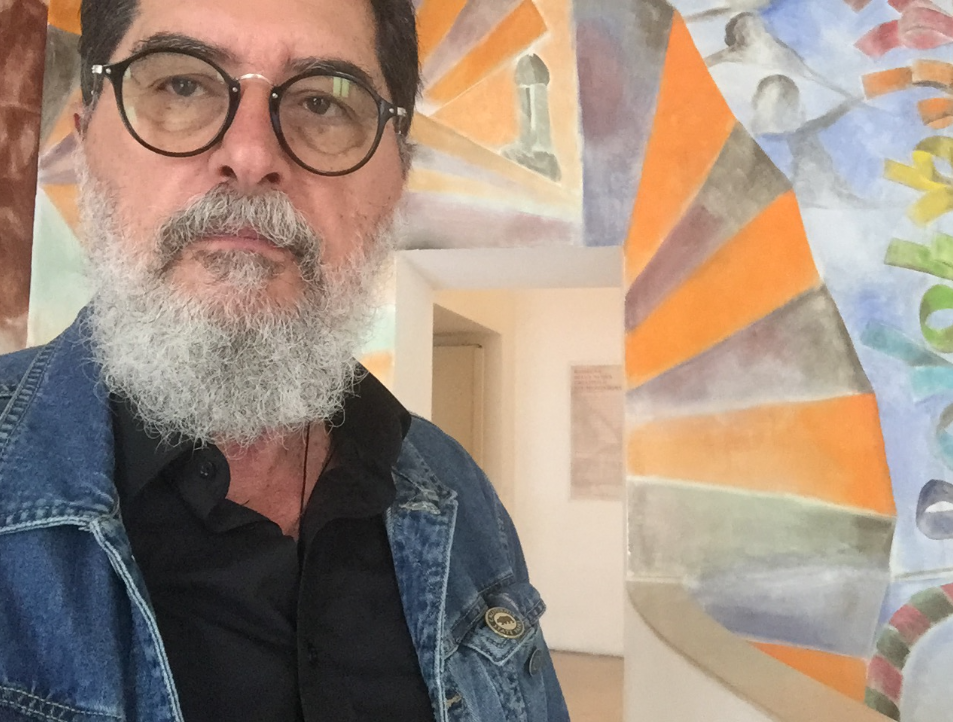
Bereavement and Belonging
Memory plays an intrinsic role in how individuals and societies construct their identity. When we consider memory shaped by immigration, exile, expulsion and war that left a watermark on individual and collective remembrance, we unearth a large cache of literary work centered on migration. Memory does not only adhere to the point of origin. The travels and travails that invoked memory plays equally important role in literary output.
Bereavement and Belonging, The Antonym’s Immigrant Memory series presents poems by Pasquale Verdicchio, a scholar and poet of Italian origin living in the US. An immigrant carries memory of the journey for a lifetime.
The lights of Lampedusa
Night rain washes
stars from the sky
until it seems so dark
that features disappear
against the rolling seas
against our better judgement
gone now without resource
away from familiar smells
of home received
into a darkness
without direction
carrying blessings and charms
familiar to the touch
even when sight fails
when rain falls
thick as smoke
its soot upon the skin
with the salt of travel
tightly packed onto a sinking ship
despair locked into our throats
hallucinating ears
catch a sound of land
confusing doom with hope
starboard with port
night with blindness.
And the night rains
down on shoulders of fear
lightning blood and tears
voices practiced
with the words of the dead
voices of the voiceless
that walked on air
eyes filled with shadows
shades of death
falling with the rain.
(Shrouds
lined up on the floor
of a large warehouse
draped bodies
fill the frame of news photos
an incident, an accident,
a tragedy. Too many!
A Christo installation?
A commemoration
and metaphorical reference
rememberance?
But it’s not.
and it has happened before
again and again
and again after this
with the dead beyond belief
but once again swept
under the rug.
Facebook folks post photographs
rescue scene, photographs
dead lined up on the beach
where others are sunning
in the still warm autumn weather.
Posting photographs
of the “great migration”
a reminder of history
and decks of ships
packed to the gills
with those who were then
unwelcome unwanted but necessary
unwanted but useful
cheap labor
future acculturation
these immigrant masses
those images
a history forgotten
buried denied and revised
today to mean again
italiani, brava gente.
Facebook hard to face today
with the lack of understanding
stubborn repetition of common-places
wonton disregard disguised as compassion.)
What now?
count the wounds
carried across a sea
that will not part
will not provide a space
of daily bread
of speech and memory.
There are no lines to draw
from one place to another.
We are not of this world,
with drowned houses
and smothered calls.
We continue to live a nightmare
of rejection and enclosure
a spring without flowers
haunted by invisible borders
merely lines that challenge
the beauty of the world.
We live in the depths.
The horizon has risen up
to smother us.
We are abandoned ships
without name and domicile
besides this mass grave
carefully maintained
as a reminder
of our non-existence.
__
Green trunks
Two green trunks
have sat empty for decades,
in the garage, high up on a scaffold.
They haven’t changed much.
and carry the scars
of their transatlantic voyage,
hauling our possessions
from one continent to another.
Possessions is too large a word,
to contain what was in those trunks.
Blankets, sheets, pillow cases,
table cloths, towels,
some items of clothing,
dishes, cutlery, a few books.
Many things made by my mother
with her cousins,
her sisters, my godmother.
Many things passed down
from generation to generation,
from household to household.
Those trunks, and what they carried
accompanied us abroad,
are what we were, and
how we have become.
They are the places
we have inhabited,
signify familiar and familial ties.
The two empty green trunks
sitting up high on a scaffold
are family history,
and contain the air of passing.
They have traveled a long distance
to a place of arrival,
a place of new residence,
that holds the opportunity
for a new familiar.


























Nice poems, Pasquale.
Such sadness however.
I agree with the images
of non-existence
that is the outcome of
the new familiar that won’t happen.
It didn’t happen there,
it won’t happen here.
Before, during, after the nationalist war.
That is a good thing, yes?
Each one of the departed
is an island connected to
something larger, more encompassing.
And your beautiful poetry has helped us
create the impossible.